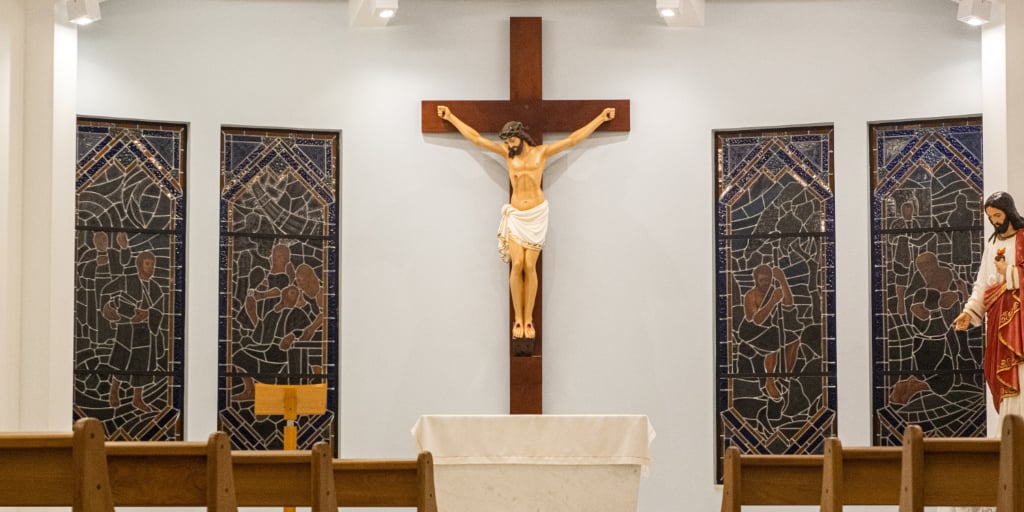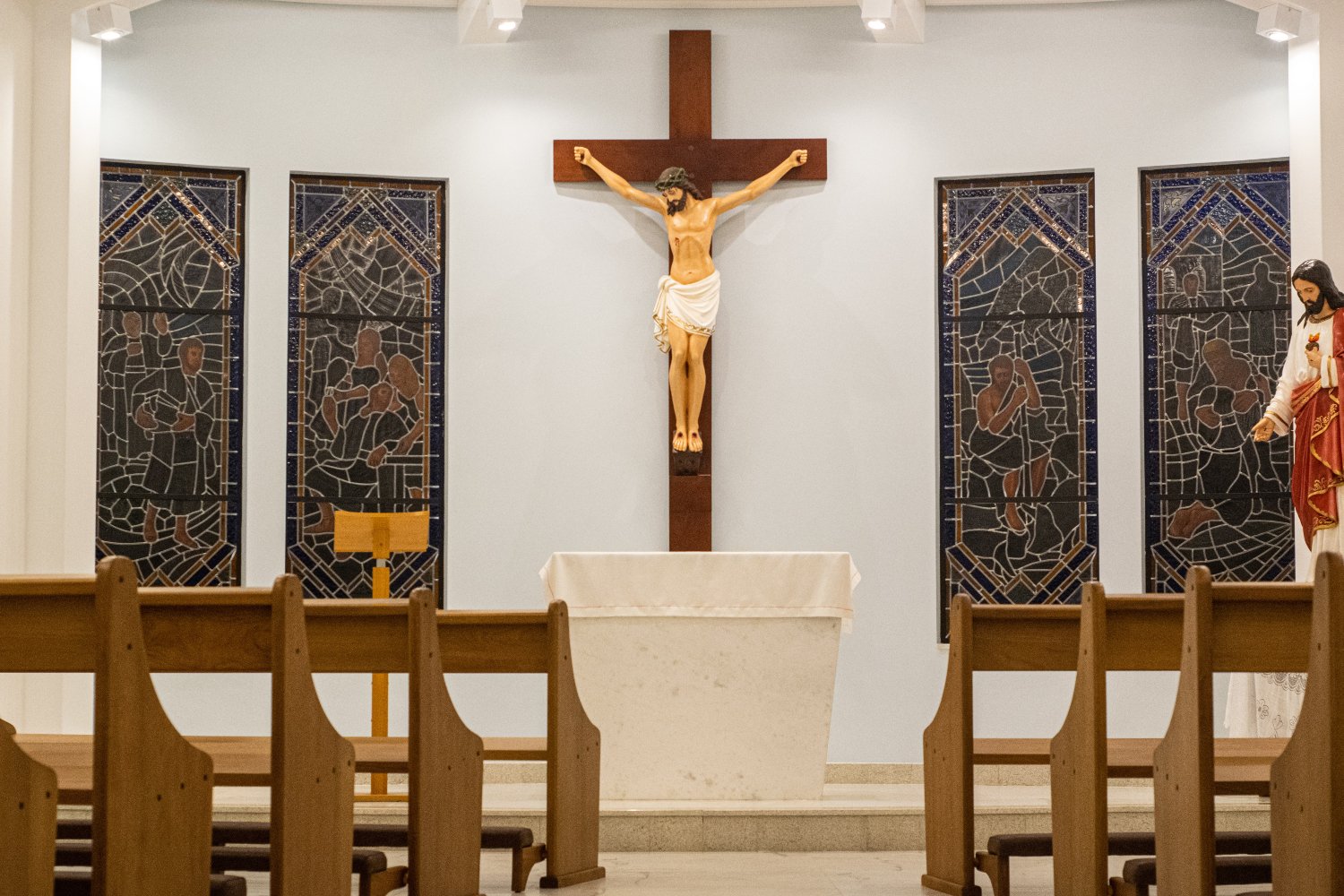
Amanda Villagómez contemplates ways to share her appreciation of an often challenging sacrament with her children.
“Sorry, Jesus. Sorry, Mom,” my daughter started to say when she was 4 years old. Depending on the moment, sometimes she sounded more sincere and contrite than others. At times, she would say it as she was in the middle of doing something she knew she should not be. Other times, she would say it with a smile, dimples showing, as she raced on to the next activity without really seeming to give it much thought. Then there were those moments when she would pause, her tone more serious.
Regardless of the manner in which the sentiment was conveyed, I loved that she had an awareness to apologize to Jesus and to me. I could see how a foundation was being laid for her to eventually be able to make a good confession, recognize her level of contrition, and examine her conscience. It also revealed seeds being planted for a desire to be reconciled.
Around the same time, she also begged to be able to go to confession with me, saying she understood enough to go, outlining all she knew of it in hopes that it would be enough for me to say she could. Nonetheless, I needed to tell her, “not yet.” After years of waiting, now I can say, “almost,” as she is preparing for her First Reconciliation and First Communion in the spring.
As a mom, having my children baptized and then walking alongside them as they prepare for the other sacraments of initiation have been some of my greatest joys. As she prepares to receive the Eucharist - the source and summit of our faith, I look forward to her also experiencing one of the sacraments of healing as part of her preparation.
I hope that as she continues to grow, she will see the beauty of Reconciliation and continue to desire to go. It was not until fairly recently in my adult life (and because of preparation for the sacrament with my oldest girls) that I truly began to embrace Reconciliation based on a deeper understanding of its purpose and significance, as well as frequenting the sacrament regularly.
Reflecting on my own experiences and in conversations with others, there seem to be many potential obstacles to accessing the power of the sacrament, including lack of understanding of why we “have” to do it or not wanting to lean into the discomfort. Nonetheless, when we are able to view the sacrament as a gift for us because of the graces associated with it that promote healing, growth, and strengthening of relationships, we begin to see it from a new perspective.

As a wife and mom, because I recognize the benefits, I desire all of my family members who are old enough to access the sacrament; however, I recognize it is all about invitation and gentle reminders with the understanding that it is a choice they need to make on their own. Regular encouragement coupled with conversations about the purpose and capacity as a gift will hopefully nurture willingness to step out of their comfort zones and into the confessional so that through their first-hand experience, they will develop the desire and motivation to access the sacrament without needing external encouragement to do so.
Copyright 2021 Amanda Villagómez
Image: Mateus Campos Felipe (2019), Unsplash
About the Author

Amanda Villagómez
Amanda Villagómez is a wife, mom of 6, and teacher educator. On her personal site, she focuses on the beauty of becoming who God created us to be by celebrating the process of change and growth.


.png?width=1806&height=731&name=CatholicMom_hcfm_logo1_pos_871c_2728c%20(002).png)
Comments